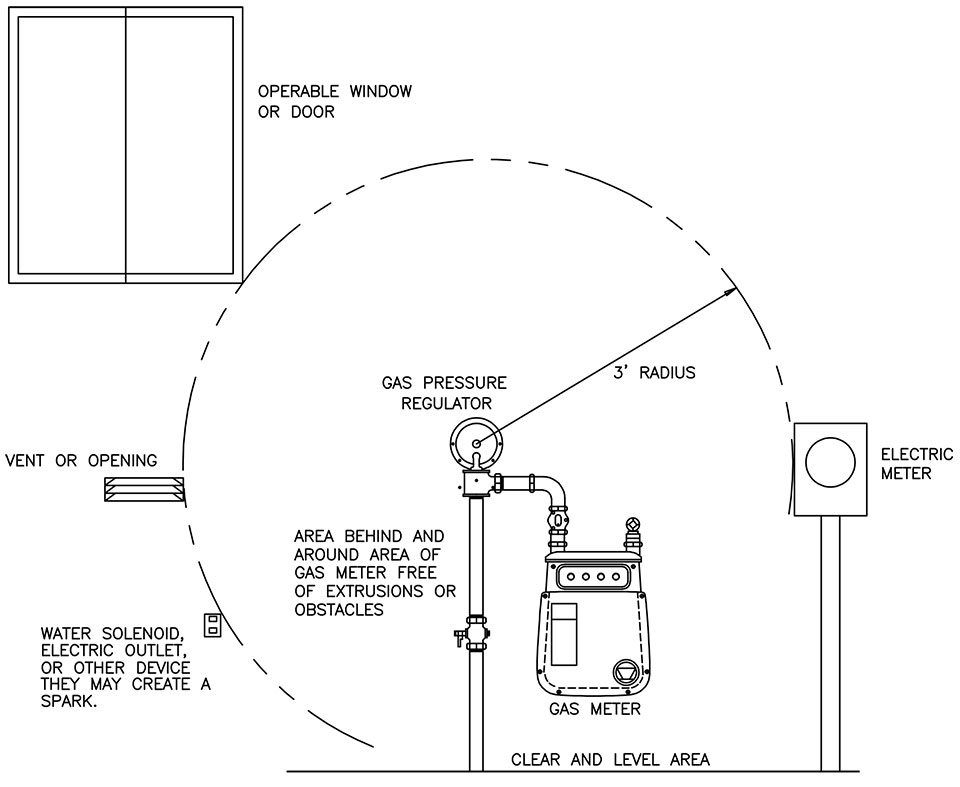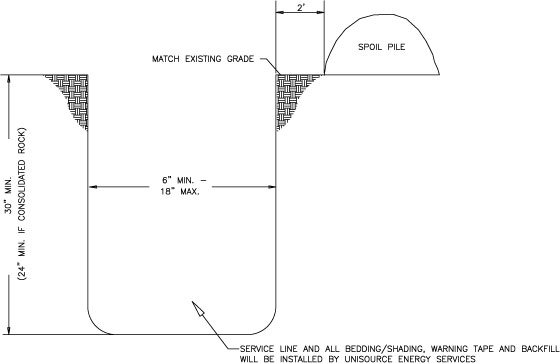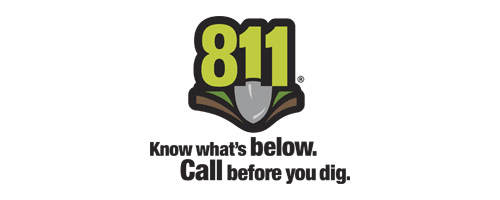Construction services
Service requests and installation requirements
Use the following information and application for new construction installations, increases or relocations, or removal of electrical facilities from a home or other building.
Application for Gas Service
To make a request for new gas service, complete the following form for either Residential or Commercial applications. Instructions for completing the application are on Page 2 of the form.
Quick Guide to New Construction
Construction Drawings and General Information
Gas Meter
To ensure the gas meter is in a safe and compliant location, follow guidance on the following diagram. Failure to meet these conditions could lead to costly relocation expenses.
Typical Meter Set Assembly Clearance Requirements
Gas Service Trench
If the customer chooses to dig their own trench, the trench must comply to the following diagram.
Typical Customer Supplied Trench Detail
Voluntary Use of Excess Flow Valves (EFVs)
Some natural gas customers who meet certain conditions may request the installation of an excess flow valve (EFV), a device designed to automatically shut off the flow of natural gas if a natural gas service line is damaged during construction, digging or in other circumstances.
Natural gas service lines connect gas mains — usually located underground in roadways, easements or rights-of-way — to service meters on customers’ property. Restricting gas flow after service line damage could reduce the likelihood of property damage or injuries caused by leaking gas. However, EFVs will not protect against gas leaks involving indoor appliances, small service line punctures or service meter leaks.
Natural gas customers may be eligible to request EFV installation if the volume of natural gas consumed does not exceed 1,000 standard cubic feet per hour (SCFH) and if they do not qualify for exceptions in U.S. Department of Transportation Pipeline and Hazardous Materials Safety Administration regulations (49 CFR Part 192.383(c)).
Current customers are not required to install an EFV. Customers who choose to install an EFV are responsible for the entire cost of installation and may be responsible for future maintenance or replacement costs, which can range from approximately $1,000 to $2,200 depending on location and other factors. If an eligible service line customer requests an EFV installation, UES will provide a cost estimate and perform the work at a time convenient for both the company and the customer.
UES makes no warranties for continued proper EFV operation under any circumstances, or during conditions in which the valve inadvertently closes during system use.
Line Extension Policy
Main line extensions will be made by UniSource Energy Services (UES) at its expense for the allowable investment as calculated by an Incremental Contribution Study (ICS).
UES, after conducting an ICS, may at its option, extend its facilities to customers whose usage does not satisfy the definition of economic feasibility, provided the customer signs an extension agreement and advances the company the funds necessary to make the extension economically feasible. Applicants may provide the trench for service lines and/or mains to UES' specifications to reduce the advance required.
Customers provided with line extensions using the Incremental Contribution Method shall be reviewed annually for a period of five years to determine the amount of any refund.
This is only a summary; you can access the complete policy in the Rates section.



